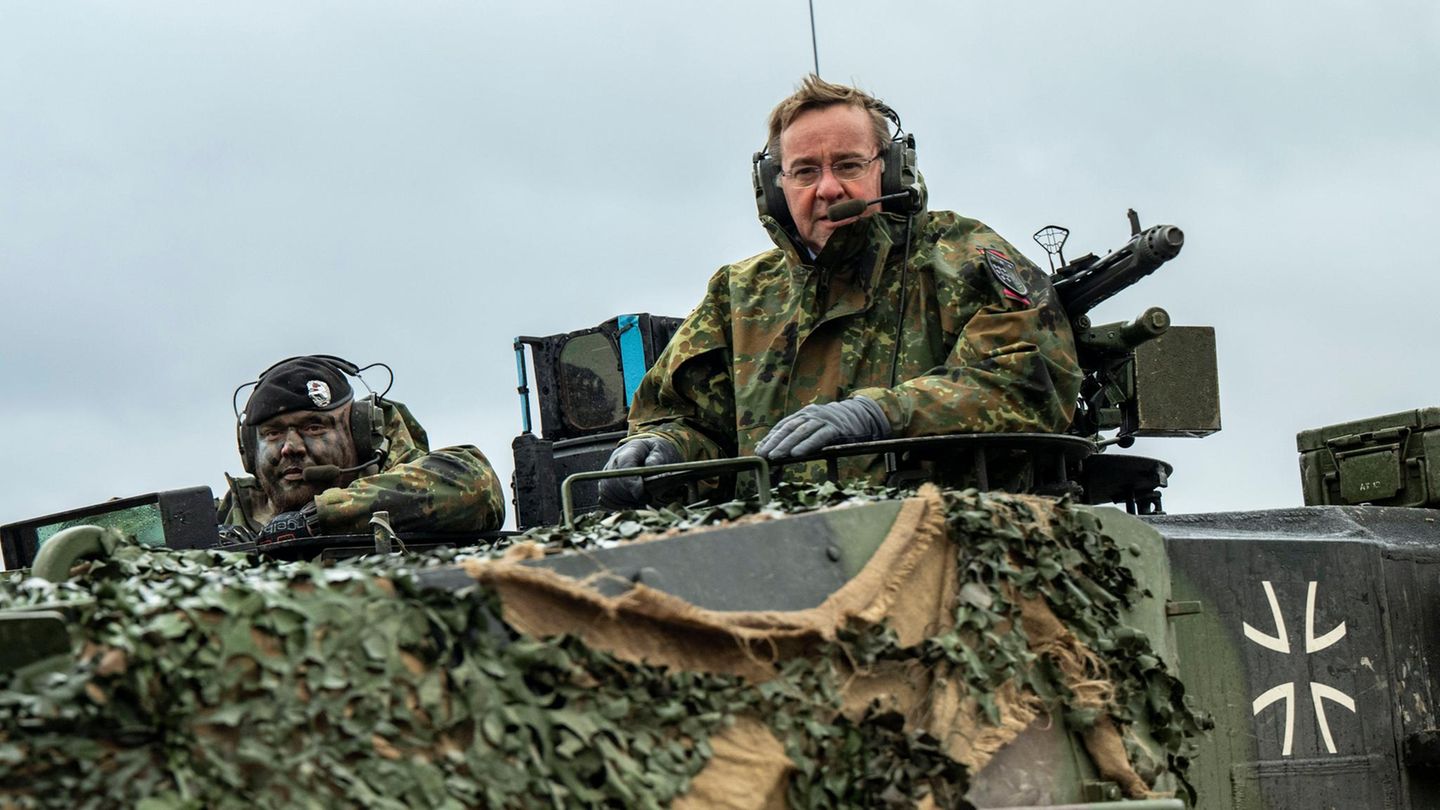After hours of searching, the wreckage of a government helicopter is found in Iran. State media confirms the deaths of the inmates – among them the president known as the “Butcher of Tehran”.
Iranian President Ebrahim Raisi and his Foreign Minister Hussein Amirabdollahian were killed when their helicopter crashed in Iran. None of the nine inmates survived, the state news agency Irna and state television reported. There was initially no official information about the cause of Sunday’s accident. Tehran’s allies – including Russia and China – expressed their condolences.
Funeral service on Tuesday
Iran’s religious leader Ayatollah Ali Khamenei ordered five days of national mourning. He also transferred official duties to Raisi’s first deputy Mohammed Mochber.
Funeral services are scheduled for tomorrow. First, a ceremony is planned in the northwest in the provincial capital Tabris in the morning, then in the religious stronghold and pilgrimage city of Qom, reported the Iranian news agency Tasnim. The date for the funeral of the two statesmen is not yet known. Raisi will be buried in his hometown of Mashhad.
Media: Israel has nothing to do with helicopter crash
According to media reports, arch-enemy Israel does not expect any real impact on the Jewish state. Citing unnamed government officials, it also said that Israel had nothing to do with the incident. There was initially no official reaction from Israel.
Raisi and Foreign Minister Amirabdollahian were returning from a meeting with Azerbaijani President Ilham Aliyev on Sunday afternoon when their plane disappeared from radar in thick fog. Together they inaugurated a dam in the neighboring country. The entourage then made its way back with a total of three helicopters, but the presidential plane did not arrive at its destination.
Speculation then arose as to whether the crash was due to bad weather, a technical defect in the helicopter or even sabotage. There was no clarity on this until Monday afternoon.
Iran’s air force is considered to be very outdated, its modernization is making little progress in the face of strict international sanctions, and spare parts are difficult to obtain. Many planes and helicopters date from before the Islamic Revolution of 1979, when the country had close relations with the United States. Serious accidents and crashes occur again and again.
Iran threatens political crisis – new elections within 50 days
Raisi’s first deputy Mohammed Mochber will now take over the official duties. Iran’s religious leader Ayatollah Ali Khamenei also commissioned him on Monday to organize new elections within 50 days together with the heads of the judiciary and parliament. Deputy Foreign Minister Ali Bagheri, who most recently played a leading role as a negotiator in the nuclear negotiations with the West, was appointed acting foreign minister.
Condolences from allies – West reserved
Iran’s allies were shocked by Raisi’s death. Chinese President Xi Jinping expressed his “deep sadness over the death” of Raisi, according to a Foreign Ministry spokesman. Russian President Vladimir Putin called Raisi an outstanding politician and a true friend of Russia. “He was rightly respected by his compatriots and enjoyed great prestige abroad,” Putin said in a letter. Turkish President Recep Tayyip Erdogan also expressed his condolences. All three countries have good relations with Iran.
EU Council President Charles Michel was one of the few Western politicians to express his condolences for Iran. Italy’s Prime Minister Giorgia Meloni also expressed solidarity with the country. Other top Western politicians initially held back, and there was initially no reaction from the federal government.
Raisi’s government has been criticized for years because of its ultra-conservative values, the suppression of civil rights and the severe economic crisis in Iran. Numerous Iranians expressed their glee over the helicopter crash on social media.
Raisi was sworn in as the new president in August 2021. As the top candidate of the political hardliners and the preferred candidate and protégé of the religious leader Khamenei, Raisi won the presidential election with almost 62 percent of the vote.
Iran has recently been the focus of attention, also because a regional war with its arch-enemy Israel seemed to be threatening. During Raisi’s term in office, the Islamic Republic deepened its economic and military cooperation with China and Russia, and relations with the West cooled, among other things because of the dispute over Iran’s nuclear program. The West also accused the leadership in Tehran of serious human rights violations. Nevertheless, just a few days ago there were reports of new talks with the USA in the Gulf state of Oman.
Religious hardliner: Raisi as a man of the system
Raisi was born in Mashhad in 1960 and worked in the country’s central judicial authority for over three decades. In 2019 he was appointed head of justice. In his previous role as public prosecutor, he is said to have been responsible for numerous arrests and executions of political dissidents in 1988, which is why his opponents nicknamed him the “Butcher of Tehran.”
Experts had meanwhile also treated Raisi as a possible successor to Khamenei, who turned 85 in April. Even though the younger generation’s criticism is now increasingly directed against the entire system of the Islamic Republic, Raisi was particularly under pressure domestically. Recently, the government pushed forward with its controversial policy of forcing people to wear headscarves, thereby alienating parts of the population even more.
Source: Stern
I have been working in the news industry for over 6 years, first as a reporter and now as an editor. I have covered politics extensively, and my work has appeared in major newspapers and online news outlets around the world. In addition to my writing, I also contribute regularly to 24 Hours World.




